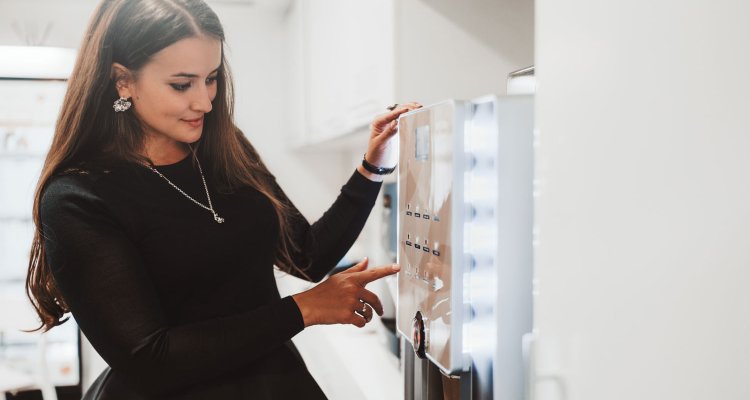
News
‘Quality’ coffee at your workplace? 10 tips for tender processes
For many employees, good coffee at work is one of the most important office essentials. Yet, how did the coffee end up in the office vending machine? Researchers Miriam Vreman and Maartje de Jong from Wageningen Economic Research wrote a white paper with 10 tips for sustainable and fair coffee tenders.
Producing coffee is a labour-intensive process that creates many residual products, while the prices that farmers receive are relatively low. Your daily coffee can therefore unintentionally contribute to child labour, forced labour or poverty, in addition to much landfill, high carbon emissions or deforestation.
There are big differences between coffee supply chains regarding sustainable practices and transparency. One type of coffee can be substantially more (or less) sustainable than another type. The selection of suppliers by a company, university or government institution is therefore important.
Corporate social responsibility
In tender processes, the focus tends to be on economic advantages. Devoting careful attention to social responsibility in coffee tender processes can have a positive impact on supply chains on a larger scale. Based on interviews with pioneers and suppliers, buyers and experts in the coffee sector, the researchers formulated ten tips.
“Corporate Social Responsibility and Procurement is an important way of promoting positive changes. It means that contracting parties look beyond just price and quality,” say Vreman and De Jong.
Good preparation of award criteria
By carefully considering the criteria which will apply in the tender process beforehand, and involving sector experts when formulating and assessing the tender, it is easier to value sustainable suppliers. Examples of such criteria include evidence of long-term contracts with producers or questions about the price structure of the coffee (and the price that is paid to the farmer).
It is also customary to buy hot drink vending machines, the ingredients and the maintenance of the machines from one supplier. This means that smaller suppliers, which have for example specialised in sustainable coffee or tea, fall by the wayside. By keeping the option open for collaborations between different suppliers, and by limiting the administration involved, SMEs can also compete for the contract.
Don’t only consider certification
Different respondents indicated that award criteria are often used as some kind of checkbox. The requirements are formulated in such a way that you either comply with them or not. One common requirement, for example, is compliance with certification standards. However certification is not always a guarantee that coffee is produced in a more sustainable and fair way. Furthermore, certification of coffee production is quite expensive and not always profitable for smaller-scale coffee production. By leaving room for substantiation of different sustainability strategies and interventions, tender processes can become more inclusive.
Long-term collaboration
Procurement contracts with suppliers over a longer period mean that coffee farmers have guaranteed sales for a number of years. In turn, this allows them to invest in improvement and sustainability measures. And by promoting direct and long-term relationships between the farmers, the supplier and the buyer, more room is created for feedback about the achieved impact. This means better insight into the origins of the coffee and the prices that farmers receive. If circumstances change, good cooperation also encourages better communication, mutual understanding and a joint search for solutions.